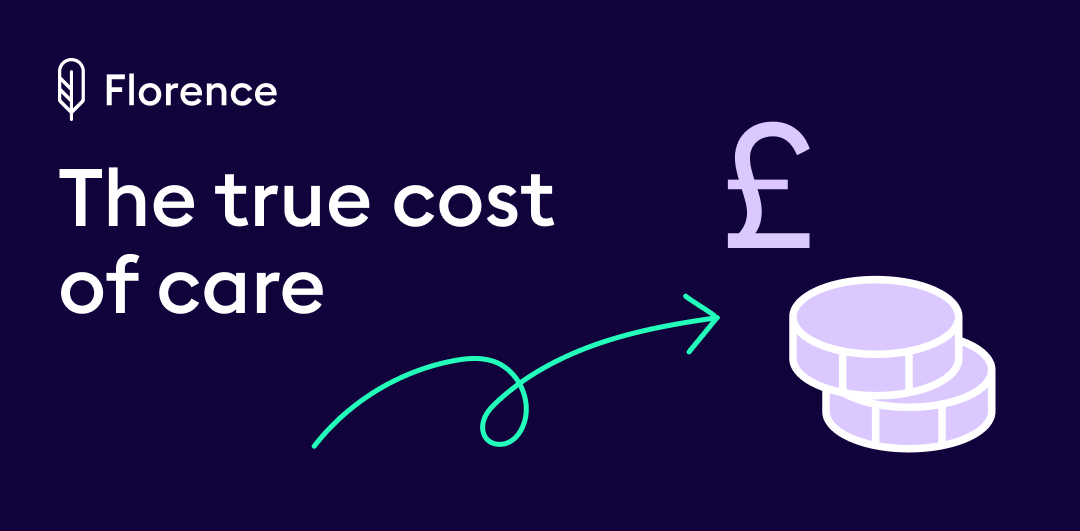
Labour’s recent decision to increase National Insurance (NI) contributions has stirred deep concerns across the social care sector. Social care providers, already wrestling with soaring operational costs, staff shortages, and an unrelenting demand for services, now face an additional financial burden. What’s clear is that funding is not keeping pace with costs, and this squeeze could lead to some hard choices.
While this policy aims to plug public funding gaps, it poses a significant threat to the stability of many care homes, home care providers, and charities that form the backbone of support for the UK’s vulnerable populations. Without intervention, we could see painful consequences for both providers and those in need of care.
Conversations with sector leaders reveal the financial strain that social care providers are now facing. One leader, responsible for 50 care homes, explained the urgency: she anticipates a need for a 6-8% increase in Local Authority funding just to absorb these new costs and keep facilities open. Without such adjustments, closures will be inevitable.
This situation highlights a wider, critical issue: many social care providers, especially smaller ones, operate with razor-thin margins and simply cannot absorb additional costs without increased funding support. While the intent of these policy changes is understandable, they risk pushing an already fragile sector further towards crisis.
The increase in NI and minimum wage aligns with Labour’s broader promise to invest in vital public services. However, the policy’s impact on social care providers—a sector already at breaking point—raises questions about its feasibility and fairness, especially when compared to the NHS, which won’t face the same costs.
Financial pressures already facing social care providers
The social care sector has long struggled with structural funding challenges. Even before the new NI hike, providers faced considerable financial pressures that limited their ability to operate effectively.
- Labour shortages and wage inflation: Social care providers are in constant competition with the NHS and other private healthcare providers for staff. As a result, wages have been pushed up, as providers do their best to hold onto qualified staff. Florence’s analysis on the “True Cost of Care” highlights how wage inflation and staff shortages create financial strain, pushing smaller providers to a breaking point.
- Minimum wage increases and regulatory costs: Planned minimum wage hikes are only going to add to the burden—especially for care providers reliant on government funding or families who simply can’t absorb additional costs. Not to mention, regulatory demands and compliance costs are already stretching these providers to their limits. We fully back fair wages for our vital workforce, but realistic funding support is non-negotiable.
The new NI rate’s projected impact on social care providers
- Cost implications: According to the Financial Times, the rise in employer contributions due to the NI hike will significantly impact the slim margins of small-to-medium care providers. With these costs shouldered by employers, many providers are worried they’ll have to cut back on essentials—staff, training, and even maintenance of facilities—which could push some to the edge.
- Calls for exemption: Voices from The Carer UK, and The Guardian are already ringing the alarm, demanding for an exemption from the NI increase. Sector leaders argue that social care, much like the NHS, is a critical public service. Without a similar exemption, the social care sector is left to manage with far less financial support, which could lead to devastating outcomes for providers and clients alike
- Impact on service quality and staffing: As noted in Community Care, the NI increase risks undermining funds earmarked to strengthen social care. Instead of going toward service improvements or additional hiring, these funds will likely be absorbed by the rise in employer NI costs, limiting providers’ ability to improve service quality or recruit much-needed staff.
Potential consequences for service users and the broader health system
The NI hike doesn’t only threaten providers; it could also have a severe impact on service users and the wider healthcare system:
- Increased NHS pressure: Social care plays a vital role in reducing the burden on the NHS by caring for people outside hospital settings. If providers are forced to close or reduce services, the NHS may experience increased patient loads, as people who might have received social care remain in hospitals due to a lack of alternative support.
- Service reduction or closure: Smaller providers, unable to absorb the new costs, may be forced to make tough calls, potentially leading to closures. This could lead to longer waitlists, more travel for care, and a real reduction in quality of life for those relying on these services.
- Increased costs for families and the state: With fewer private and charitable providers available, families may have to shoulder more out-of-pocket expenses or turn to overburdened state-supported facilities, which only increases the pressure on public resources.
Sector leaders’ response & recommendations
It is essential that policymakers recognise the unique role social care plays in public health and exempt these providers from the NI increase, as has been done for the NHS. Such exemptions would offer some breathing room, allowing providers to invest in quality care rather than diverting limited resources toward additional taxes. Without these exemptions, we risk a wave of closures and a diminishing capacity to care for our most vulnerable populations.
Sector leaders have made a series of urgent recommendations to mitigate the fallout of the NI increase:
- NI contribution exemptions: Many are calling for exemptions for social care providers, similar to the concessions given to the NHS. Such exemptions would help level the playing field and allow providers to focus on delivering quality care without being crushed by additional taxes.
- Increased government support and transparency: Sector leaders are urging the government to make fair wage increases feasible for social care staff, with additional support to help providers manage rising costs. Clear guidelines on how funds are allocated will be essential for effective planning.
- A comprehensive review of social care funding: The government is encouraged to conduct a thorough review of social care funding, addressing the sector’s unique challenges and establishing a sustainable, long-term funding model that recognises the essential nature of social care.
What next? Policymakers must act to protect social care’s future
We believe that Labour’s NI increase could lead to significant, unintended consequences for the social care sector. This policy, unless modified, stands to undermine the stability of providers, ultimately impacting those who rely on them and increasing pressure on the broader healthcare system.
Our position is clear: the government must provide an exemption for social care providers or look to better fund the sector’s needs. Without this support, many providers will struggle to remain operational, leaving an ever-growing number of individuals without the care they need.
This moment calls for collaborative action. We urge policymakers to work closely with industry leaders to reevaluate the NI policy and implement solutions that safeguard the future of social care. Social care is not just another service; it’s a vital pillar of the UK’s social infrastructure. Ensuring its sustainability is essential if we are to achieve a fairer, more resilient safety net and truly support the wellbeing of our communities.


